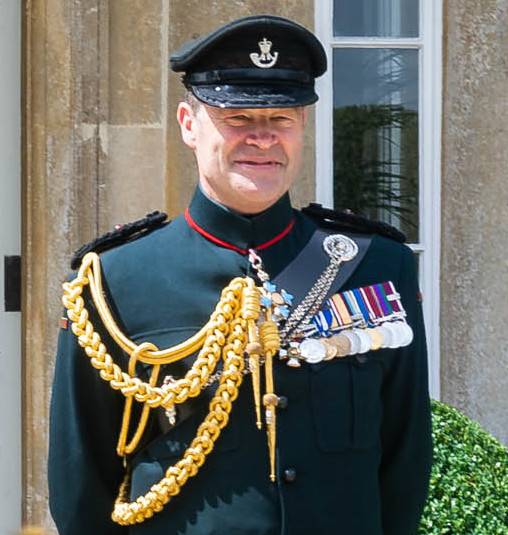Chief of the General Staff Patrick Sanders described the choice facing Britain as its “1937 moment” in what appeared to be a reference to when Nazi leader Adolf Hitler invaded Austria
Russia will likely be an even greater threat to European security after the war in Ukraine than it was before and the British army must be prepared, its Chief of the General Staff Patrick Sanders said on Tuesday.
Sanders, who became chief of the general staff this month, used his first speech to warn that the army must be ready to fight to “avert conflict”, in what appeared to be an appeal for modernisation and possibly further defence spending.
“While Russia’s conventional capability will be much reduced for a time at least, (Russian President Vladimir) Putin’s declared intent recently to restore the lands of historic Russia makes any respite temporary and the threat will become even more acute,” Sanders said in a speech at the Royal United Services Institute, a defence and security think tank.
“We don’t know how the war in Ukraine will end. But in most scenarios Russia will be an even greater threat to European security after Ukraine than it was before.”
He said the army should focus on boosting readiness so troops could be deployed quickly, and on urban combat and rebuilding stockpiles. He described the choice facing Britain as its “1937 moment” in what appeared to be a reference to when Nazi leader Adolf Hitler invaded Austria.
“We’re not at war, but we must act rapidly so that we aren’t drawn into one through a failure to contain territorial expansion,” he said. “From now the army will have a singular focus to mobilise to meet today’s threat and thereby prevent war in Europe.”
“There is now a burning imperative to forge an Army capable of fighting alongside our allies and defeating Russia in battle,” Sir Patrick wrote to his charges, according British press. The new professional head of the British Army, said that his “singular duty” would be to “make our Army as lethal and effective as it can be.”
Furthermore, General Sir Patrick Sanders stated, “I am the first Chief of the General Staff since 1941 to take command of the Army in the shadow of a land war in Europe involving a continental power. Russia’s invasion of Ukraine underlines our core purpose – to protect the UK by being ready to fight and win wars on land.” His remarks come as the United Kingdom plans to shrink its combat troops figures from 82,000 personnel to 72,500 by 2025. Despite the significant troop reduction, UK now believes that the war in Ukraine could most likely spill in the eastern flank of Europe.
Meanwhile, NATO chief Jens Stoltenberg had earlier told German newspaper Bild, “We must be prepared for (the war in Ukraine) to last for years. We must not weaken in our support of Ukraine, even if the costs are high – not only in terms of military support but also because of rising energy and food price.”
“That is no comparison to the price that the Ukrainians have to pay every day. And if Putin learns from this war that he can simply carry on as he did after the 2008 war in Georgia and the occupation of Crimea in 2014, then we will pay a much higher price,” said Stoltenberg. NATO, said its chief, will continue to support Ukraine in its self-defence, but is not part of the conflict.
“We are helping the country, but we will not send NATO soldiers to Ukraine,” iterated Stoltenberg. The Alliance has bolstered the troop deployment to 40,000 in order to secure the territory of the alliance on land, at sea and in the air amid Russia’s aggression. “We need to steel ourselves for a long war,”
Prime Minister Boris Johnson meanwhile said after he returned from a trip to Ukraine. “I am afraid that we need to steel ourselves for a long war, as Putin resorts to a campaign of attrition, trying to grind down Ukraine by sheer brutality,” Johnson told The Times.

